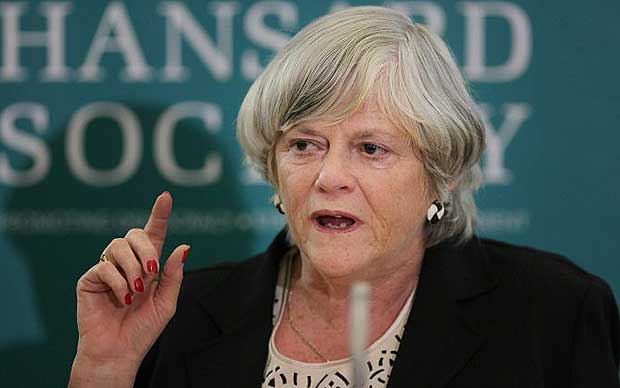Ann Widdecombe brands trans rights dangerous farce in transphobic rant
The former Tory MP doesn't hold back in her recent Daily Express column
By Steve Brown

Ann Widdecombe brands trans rights a “dangerous farce” in vile transphobic rant.
The former Conservative MP has never been afraid to speak her mind when it comes to politics, minority communities and even the Royal family, but now in her recent column in the Daily Express, she has turned her attention to the trans community and says it “needs stopping in its tracks”.
Although she does offer help to those with “genuine gender dysphoria”, Widdecombe slams schools who have abandoned the “division of lavatories”.
She writes: “Let us look at hard facts.
“We are born either male or female, an arrangement of nature which allows us to reproduce as a species.
“Out of a population of 65 million only a few thousand seek help for transgender issues and even fewer have actual sex- change procedures, with some regretting it and seeking reversal.
“It is right and proper that those with genuine gender dysphoria receive help but it is beyond belief that any government should say it is enough to say you are the opposite sex to be recognised as such.
“Yet such is the prevailing lunacy that heads of schools have decided to abandon the division of lavatories into male and female, the Labour Party is in a tizzy about whether men should be allowed to apply for all-woman shortlists if they “self-identify” as women, men can invade women’s changing rooms just by claiming to be female and male prisoners, some violent, can demand to be housed in women’s jails.
“The whole dangerous farce needs stopping in its tracks. Boys are boys and girls are girls and no should ever be prevented from saying so.
“Similarly, men are men and women are women and only when they have passed rigorous medical analysis and undergone the necessary procedures to effect real change should they be allowed to assert otherwise or at any rate expect society to act upon such assertion.
“As for prisoners, they should serve their sentences in the gender in which they were legally recognised at the time of sentence.
“What is unreasonable about that?”
